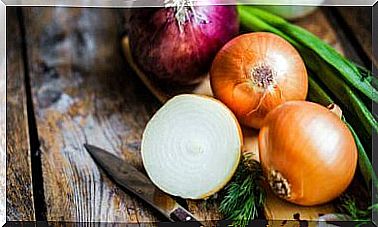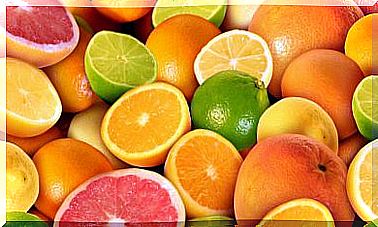4 Foods That Contain Melatonin
Melatonin is consumed as a natural supplement to improve sleep and combat the effects of jet lag. You can also eat foods that contain melatonin and can help you fall asleep naturally.

Melatonin is a hormone that our brain makes. It is commonly used as a supplement for sleep disorders, such as insomnia and jet lag or jet lag syndrome. Unlike many sleep medications, it is unlikely that you will become dependent on the hormone, or that its effect will decrease after repeated use.
In many health food stores, the hormone is in capsule form. But we can also choose to consume foods that contain it.

Read also: Melatonin: the sleep hormone
The benefits of melatonin
The release of melatonin in the body is related to the time of day: it increases when it is dark and decreases when it is light. In other words, this hormone regulates our biological clock, differentiating the periods of sleep and wakefulness. In this way, it tells your body when it is time to go to sleep and when it is time to wake up.
It could also improve the quality and duration of sleep during the day for people whose work requires working shifts at night.
Its deficiency can cause insomnia or severe difficulty sleeping in adults and children. In these cases, it is recommended to introduce melatonin supplements in the diet.

This hormone is also an ally of those who travel frequently to countries in different time zones. It helps regulate metabolism and promotes adaptation, avoiding symptoms such as fatigue, headaches or excessive drowsiness.
Jet lag is temporary. But if you travel frequently and continually struggle with jet lag, you could benefit from seeing a sleep specialist.
In addition, this hormone is used to treat children who have sleep problems and who suffer from autism or some type of mental retardation. It is also used for blind people who have sleep disorders.
Melatonin supplements
Before including any supplement, it is essential to consult a doctor. It is also essential to determine the daily dose to maintain a balanced diet.
Generally, an adult person can consume up to 700 mg per day.
Pregnant or lactating women, and people under treatment with antidepressant drugs or steroids, should stop taking them. In addition, patients suffering from diabetes, allergies and other pathologies should avoid the use of melatonin, regardless of age.
Melatonin-containing foods
Melatonin is naturally found in plant-based foods. We have listed the best sources of that hormone below for you to consume naturally and inexpensively.
Nuts

Nuts are foods rich in “good fats” such as Omega-3 and Omega-6, proteins, minerals, vitamins, and hormones, including melatonin.
Tomato
Tomato is a vegetable rich in antioxidants, vitamins A, C, E and K, and minerals such as iron and potassium. In addition, it helps to provide a moderate dose of melatonin to the body.
Cereals

Cereals such as rice, corn and oats are excellent allies of our sleep, since they provide a good amount of melatonin. They are also excellent sources of carbohydrates, vitamins, and minerals.
Fruit
Fruits can also contain melatonin. Especially bananas, cherries, apples, and pomegranates.
Bananas are traditionally recommended at night because they help you fall asleep and regulate the sleep-wake cycle. In addition, it is rich in potassium, a cardioprotective mineral.
Cherries are high in melatonin, even more than is found in the blood of some mammals.
Always remember to consult with a doctor if you are going to take a supplement such as, in this case, melatonin. Although it is natural and safe, it is always good that your doctor tells you how much you should take, if you really need it.









